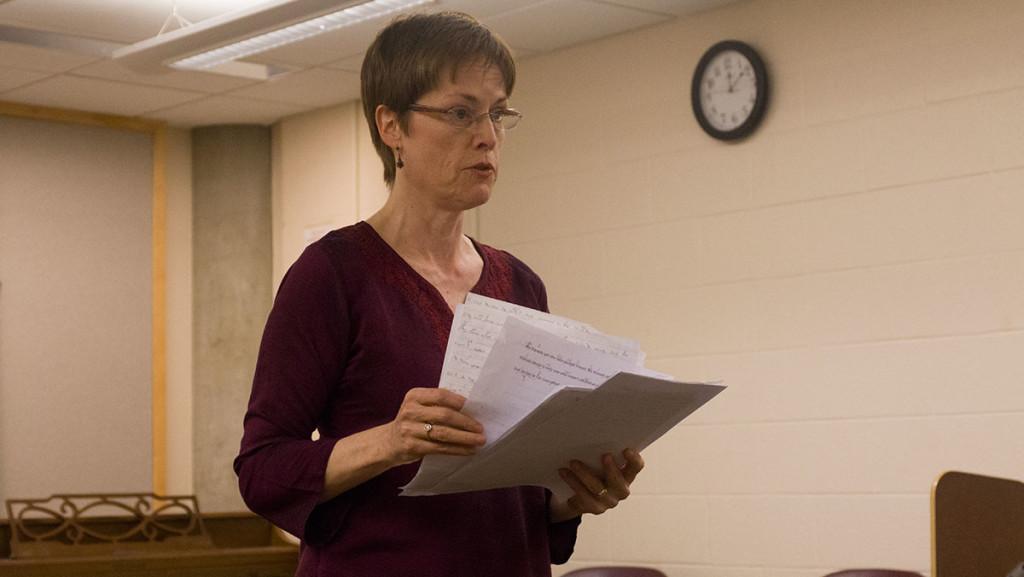The day after Harper Lee died Feb. 19, the Geva Theatre in Rochester, New York, dedicated its production of “To Kill a Mockingbird” to her memory. Kathleen Mulligan, associate professor of voice and speech at Ithaca College, served as the dialect coach for this cast, a job that entailed teaching the actors the specifics of the southern Alabama accent integral to the story.
The show began Feb. 16 and is running through March 20. Opinion Editor Kayla Dwyer spoke with Mulligan about her role as dialect coach, the importance of mastering the Alabama dialect and what the story means to her.
Kayla Dwyer: Could you describe the role of a dialect coach and the intricacies of what you did?
Kathleen Mulligan: My job as a dialect coach was to give materials and coaching to all of the cast so that they were all in the same world, to make sure that they had the specific information they needed for an Alabama dialect and also any variations within that, depending on the characters. A big part of what I did was working with the children. There are three child characters in the cast, and they had double casted them, so it was six young actors. … I kind of had to adjust the way I worked with them based on their lack of experience. First I gave an introduction of the Alabama dialect and the specifics of that dialect so that we weren’t just kind of making a generalization about the entire southern part of the United States because dialects do vary depending on the area. … I had to deal with those slight variations that happened within characters but also make sure that we were a part of one world, which is a community in southern Alabama in the ’30s.
KD: How did you get to be knowledgeable about the southern Alabama dialect?
KM: To tell you the truth, I wasn’t terribly knowledgeable about it before I got this job. When Mark Cuddy, the artistic director of the Geneva Theatre, contacted me, I knew that I had to do some research. There are a lot of great resources now online. There’s a website called the International Dialects of English Archive that has actual speakers of each dialect, recordings of them. I was able to do some research online about the African-American Vernacular English. I had to do several hours of research and listening and identifying for myself what the unique things were about this dialect.
KD: Could you explain the importance of mastering the dialect with interpreting the novel?
KM: One thing is that Harper Lee was from that part of the country, and she wrote with that musicality, that language in mind, and every dialect does have a musicality. She wrote in those southern rhythms because that’s what she heard in her head. I think to honor that, it was important, and also to show respect for people from that part of the country that you’re not making a generalization that all Southerners sound like this.
KD: What does “To Kill a Mockingbird” mean to you?
KM: The movie is my favorite movie in the world and means so much to me that I actually commissioned a composer to adapt the theme from the movie for guitar and flute for my wedding. That’s how much I love that movie. … I think an argument could be made that it’s maybe the great American novel, definitely one of the great American novels, and it’s a story that really speaks to a lot of people. I know that the day before the production opened up in Rochester, we got the news that Harper Lee died, and I’ll admit to you that I shed a couple tears. I mean, that story had a profound effect on me, and I know that I’m not alone in that.
KD: What kind of effect do you think the news of her passing had on the cast and crew?
KM: I can imagine that it really struck the cast and probably made them feel like they were doing something very important. I do know that on opening night, they announced to the audience that they were dedicating the run of the show to her memory. So I can only guess that every time they do it, they think about her and think about the story that she gave us.














